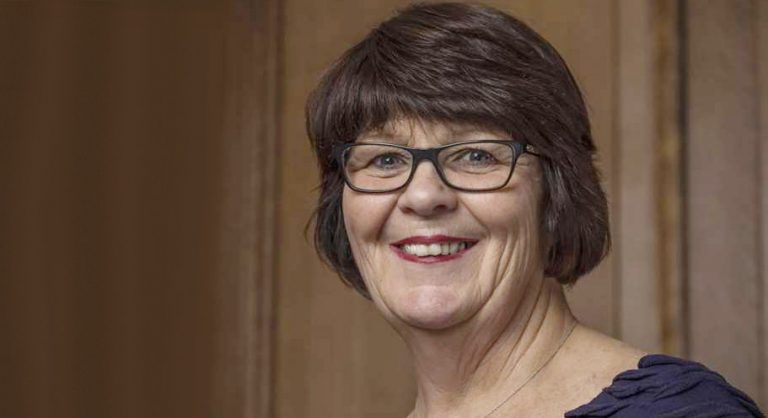Council pushes back against erection of increasing numbers of broadband poles
UK economy shows growth but precarious position remains
British Steel turns to biomass experiment for sustainable fuel
A university research study supported by British Steel is investigating the production of an environmentally friendly green fuel.
The research will investigate whether the fuel, known as biochar, can replace injection coal in blast furnaces and act as a future clean carbon source for electric arc furnace steel production.
Peatlands are some of the most fertile lands in the UK for food growth, but decay of the peat soil emits large quantities of carbon dioxide. Alternatively, farming the land as sustainable wetlands, growing willow for biomass, prevents degradation of the peat.
Subjecting the willow crop to a thermochemical treatment called pyrolysis would be used to provide heat to enhance indoor farming productivity and produce biochar – a man-made charcoal. This biochar might then be used as a coal replacement, reducing the requirements for fossil fuels and reducing the net emissions that contribute to global warming.
Academics from the University of Lincoln have secured funding from the Industrial Decarbonisation Research and Innovation Centre for the project, and are working with farming estate and biochar supplier Lapwing Energy, CATCH – a champion for clean industrial growth – and British Steel.
As a partner in the project, the steelmaker is helping to steer the study and give a technical view on requirements to determine if biochar could replace injection coal and act as a future clean carbon source for electric arc furnace steel production.
Dr Andy Trowsdale, our Head of Research and Development, said: “By partnering with suitable suppliers, it is possible to provide sustainable feedstock materials and at the same time support land use projects that provide environmental benefits that far exceed those related to the fuel.
“A tonne of sustainable bio-carbon optimised for our steelmaking needs will reduce our net CO₂ emissions by three tonnes. But if the requirement for this material can prevent the degradation of peat re-wetting the land, then the CO₂ benefit can be nearly 10 times this amount. Combined with off-setting benefits from not extracting coal and each tonne of bio-carbon from this project has the potential to reduce UK net CO₂ emissions by nearly 30 tonnes.”
The project is funded by the UK Government as part of the Direct Air Capture and Greenhouse Gas Removal programme. The UK aims to reduce industrial emissions to net zero by 2050 and research projects that have received funding each support that ambition.
Building society highlights how to get extra income without working any harder…
Millions of people could be missing out on almost £1,000 extra income a year because their savings are in low- or no-interest paying current accounts, analysis from Yorkshire Building Society and CACI suggests.
There are nearly 13 million current accounts held in the UK with balances above £5001, and of those people who hold at least £5,001 in their current account, the average balance held is £24,500.
Almost £400bn is being held in current and savings accounts earning 1% interest or less, but people’s lack of understanding of the impact of their savings habits means millions are losing out on potentially thousands of pounds in interest.
Research also completed by Yorkshire Building Society suggests that over half of savers haven’t compared the interest paid on their accounts in the last year, and over a third hold most of their savings in a current account, offering little or no interest.
Chris Irwin, director of savings at Yorkshire Building Society, said: “Despite savings interest rates getting a lot of attention over the last year, following the significant increases in the Bank Rate, it’s surprising that there are still large pockets of people who are significantly missing out on savings interest – shopping around can now make a substantial difference to the returns available.
“Keeping large amounts of funds in low paying current accounts has become a costly mistake for millions. It’s understandable to want to have money accessible for emergencies or even topping up everyday expenses, but with so many instant access savings accounts currently available in the market paying a much higher return, there has never been a better time to review the home of your savings.
“Reviewing finances and savings can sometimes be an afterthought, with other things in life taking priority, however the start of a new year provides the perfect opportunity to take a close look at your finances and increase awareness of your situation and from there look at how you could make small changes which add up to much bigger returns.
“It doesn’t matter how you choose to go about it, but making just one positive change to your finances, could make a big difference in the long-term.”
Bradford bed firm secures Manufacturing Guild Mark for business excellence
Lincolnshire’s apprenticeship award scheme includes northern Lincolnshire in catchment area
For the first time ever Lincolnshire’s Apprenticeship Champion Awards will also accept applications from North and North East Lincolnshire.
- Greater Lincolnshire Apprentice Champion 2024
- Greater Lincolnshire Apprenticeship Employer Champion 2024
- Greater Lincolnshire Apprenticeship Training Provider Champion 2024
North East Lincolnshire Council’s Cabinet to discuss pre-let for Sea Road building in Cleethorpes
North East Lincolnshire Council’s Cabinet are set to discuss a pre-let for the Sea Road building in Cleethorpes.
Sea Road, in the heart of the town, has been remodelled over the last few years, with the former “Waves” site being demolished for redevelopment. Interrupted by COVID, the scheme has picked up again in the last few months following the award of Government’s Levelling Up Fund monies for three projects in the heart of the town, with the main construction works starting later in 2024. The landmark Sea Road building has been marketed by local agents, PPH Commercial, generating serious interest in the site from interested parties. Discussions regarding a long-term pre-let agreement are in advanced stages, and proposed Heads of Terms have now been agreed, subject to Cabinet approval, for most of the ground floor and all of the first floor of the building, to a leading independent national hospitality company. The remainder of the building will continue to be marketed for use. The Cabinet meeting is on Wednesday 17 January at 5pm at Grimsby Town Hall.Harworth completes six land parcel sales
CBRE hires head of science and technology for North
CBRE has appointed Jonathan Lowe as head of science and technology for the North. The strategic, new role will further strengthen CBRE’s offer for occupiers, operators and investors in this quickly evolving sector.
Formerly head of life sciences at Avison Young, Jonathan brings a diverse range of expertise advising developers, investors, occupiers and universities across multiple asset classes including offices, industrial and EV. Additionally, he has public sector experience, having been seconded to central government departments Ministry of Justice and Department of Education/MHCLG.
Jonathan will work across CBRE’s Northern region, providing enhanced sector specialism to align with the growing science and technology sectors. Whilst further developing the offering to existing clients such as Bruntwood Sci-Tech and GMPF, Jonathan will develop out the occupational work by advising life science occupiers and advising science and technology companies.
Joe Rigby, CBRE’s head of office agency – North, said: “Jonathan joins the business at a pivotal time for the science and technology sector, during which we are acting for a diverse range of dynamic occupiers and investors. With vast sector-specific experience, Jonathan can offer a unique insight and ensure a full-service offering for clients.”
Jonathan added: “Science and technology are critical components and key economic drivers for the majority of northern regions, as well as across the UK. I am proud to be joining CBRE at this exciting time, to become a trusted adviser within these high growth sectors. I look forward to leveraging deep data driven insights through global sector expertise to add real value to existing and future clients.”












